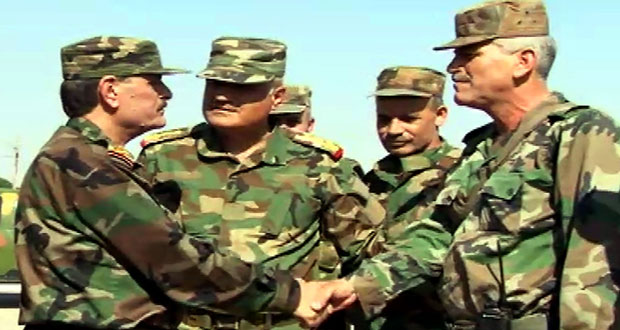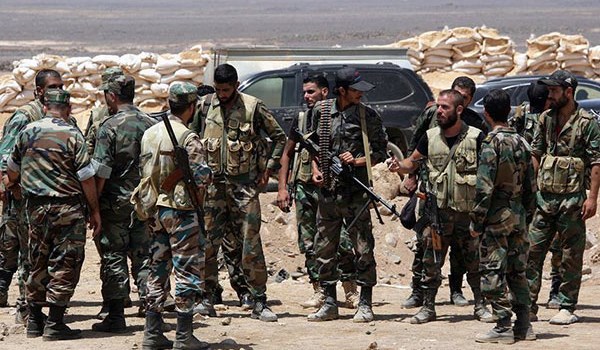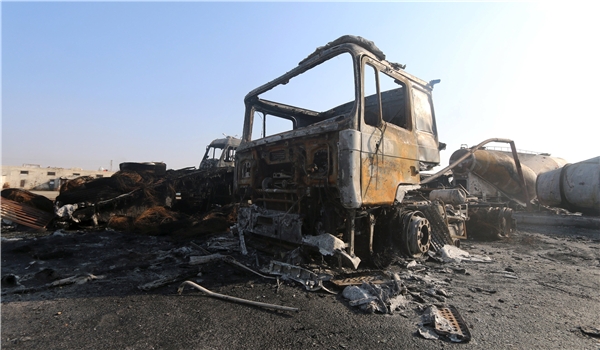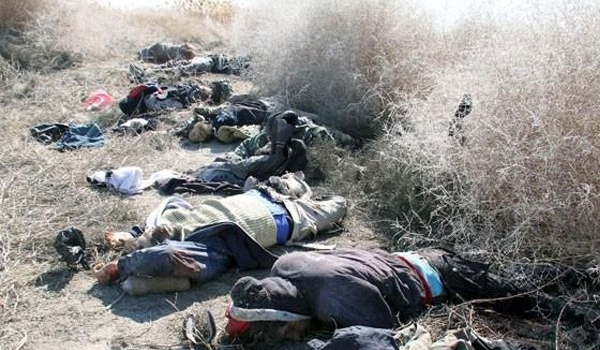Syria in Last 24 Hours: Army Uncovers Tunnel Network in Damascus
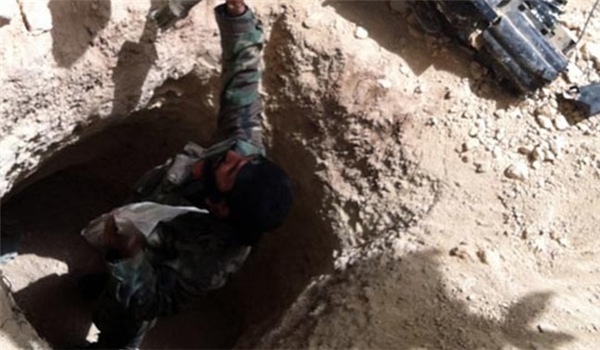
The Syrian army struck a heavy blow at the Takfiri terrorists by destroying a network of tunnels in Damascus countryside.
The Syrian troops continued their offensive operations against the Takfiri groups in Damascus countryside, uncovering a network of tunnels connecting a number of buildings in the area.
On Thursday, the army units also destroyed two tunnels in Jobar area.
A senior army official, speaking on the condition of anonymity, said that the tunnel network had been around 200 meters long, and that one of the tunnels ended in a small chamber where militants kept abductees who were forced to dig down, while two other tunnels led to bases where the armed groups planned their operations.
He added that too many rebels who were holed up in the tunnels were killed during the army operation.
Also in the past 24 hours, the Syrian army continued to make gains against Takfiri groups in nearby areas of Daraa, killing and injuring large groups of the militants.
The army troops made more headway in their fight against the rebels in the areas of Kafer Shams and Zimrin in Daraa, leaving scores of them dead and injured.
In the Western countryside of the neighboring Quneitra province, an army unit also targeted Takfiri groups in al-Hamidiyeh village, killing scores of them.
Meantime, newly-emerged footage suggests that trucks belonging to Turkey’s intelligence agency smuggle weapons into Syria in an attempt to aid the Takfiri terror groups operating in the neighboring country.
The video which was posted by Turkish daily newspaper Cumhuriyet on Friday shows inspectors searching a metallic container watched by security officers, a prosecutor and sniffer dogs.
The daily reported the trucks were carrying a total of 1,000 mortar shells, 80,000 rounds of ammunition for light and heavy weapons as well as hundreds of grenade launchers.
The Turkish government has denied earlier claims that it is arming militants fighting in Syria and accused dozens of prosecutors, soldiers and security officers involved in the searching of trucks of attempting to bring it down by suggesting that it is doing so.
The incident triggered a huge controversy in Turkey with many bashing the government for explicitly supporting terrorism in neighboring Syria.
Earlier this month, Turkey arrested four prosecutors who ordered searches in a similar incident in January 2014 and they are now in prison pending trial.
Turkish President Recep Tayyip Erdogan has sought to link the case to his top challenger, Fethullah Gülen, a US-based cleric.
Erdogan accuses Gülen of running a “parallel state” and says the interception of the Syria-bound consignment and the ensuing controversy were directly orchestrated by Gülen and his followers in the judiciary and police, a charge Gülen supporters have repeatedly dismissed.
Also, a prominent political analyst underlined that Turkish Prime Minister Recep Tayyip Erdogan has increased support for the terrorists active in Syria as a result of a confused policy at home and abroad.
“The Erdogan regime, faced with criticism of the opposition and the West, seeks to attract the US support and come out of his perplexity by increasing support for the terrorist groups in Syria and aerial support for them,” Ahmad Haj Ali told FNA.
Noting that the Turkish government is under global pressures and criticism for the administrative corruption and suppression of the opposition, he added that Erdogan is now seeking to find a way to come out of the crisis.
Haj Ali said that Turkish Foreign Minister Mevlut Cavusoglu’s remarks on aerial support for the terrorists show Ankara’s attempts to create a government in the Northern parts of Syria and disintegrate this region from the Arab country.
His remarks came after Syrian sources said earlier this month that Erdogan, during his recent visit to Saudi Arabia, held coordination meetings with the country’s senior officials to jointly supply the terrorist groups in the Syrian province of Idlib with arms and fund.
The sources said that Saudi Arabia has funded and armed the terrorists, who belong to the al-Qaeda-affiliated al-Nusra Front and other militant groups.
The terrorist groups also gained the logistical support from the Turkish side.
In Turkey, a command room was established in order to lead the terrorist attack against the Syrian army, according to the same sources which also asserted that Saudi Arabia purchases satellite photos for the benefit of the room itself.
Battlefield sources confirmed the given reports, noting that Turkey provided the terrorists during the battles with an Internet supply that links their computers and smart phones to a Turkish drone that gives them all the needed data.
Also, a military analyst said that the recent victories of the army and the Lebanese Hezbollah resistance movement in Damascus countryside made the plans of the terrorists’ coalition for the al-Qalamoun region to fall flat.
“Al-Qalamoun is the scene of battle and crushing the bones of a coalition of terrorist groups known a Jaysh Al-Fath who plotted to advance towards Al-Qalamoun in two fronts in the South and the North after the visit of Zahran Aloush (commander of Jaysh al-Islam terrorist group affiliated to the Islamic Front) to Turkey, but the Syrian army and the Lebanese resistance movement ushered in the al-Qalamoun battle with the goal of defeating the terrorists’ plots,” Syrian Military Expert Ali Maqsoud told FNA.
Zahran Aloush has recently met Ahmed Issa al-Sheikh, the former commander of Saqour al-Sham in Istanbul to coordinate for terrorist attacks in al-Qalamoun.
“The Syrian army and the resistance movement’s control over 385 square kilometers of al-Qalamoun and destroying the military infrastructures of the terrorists foiled the terrorists’ strategic plan for linking Al-Qalamoun to al-Haramoun,” he added.
